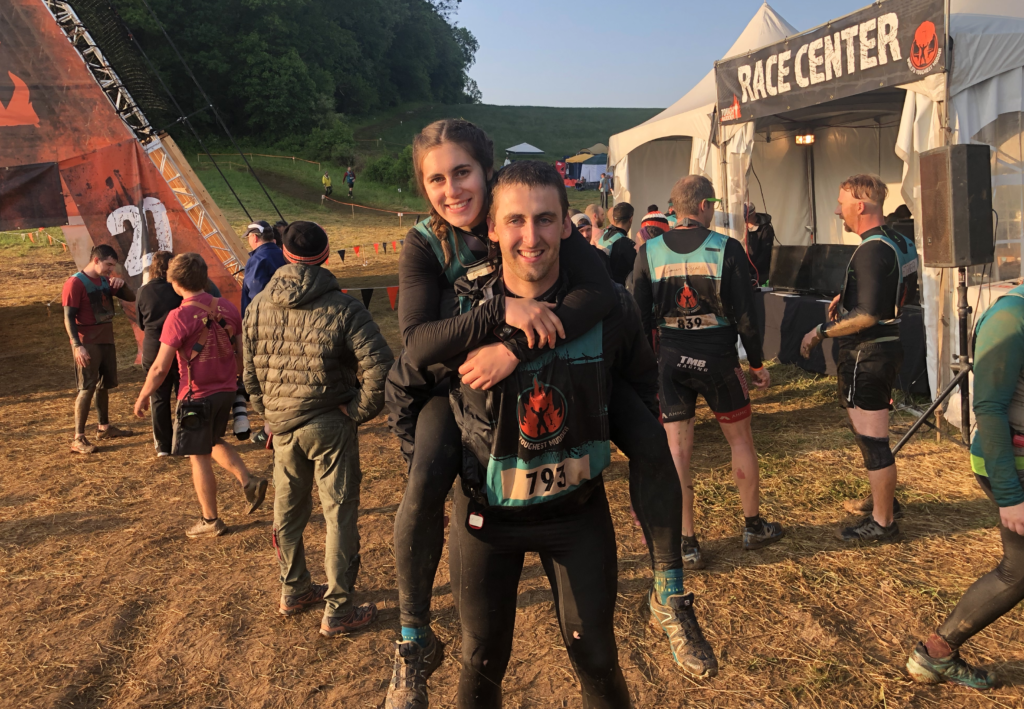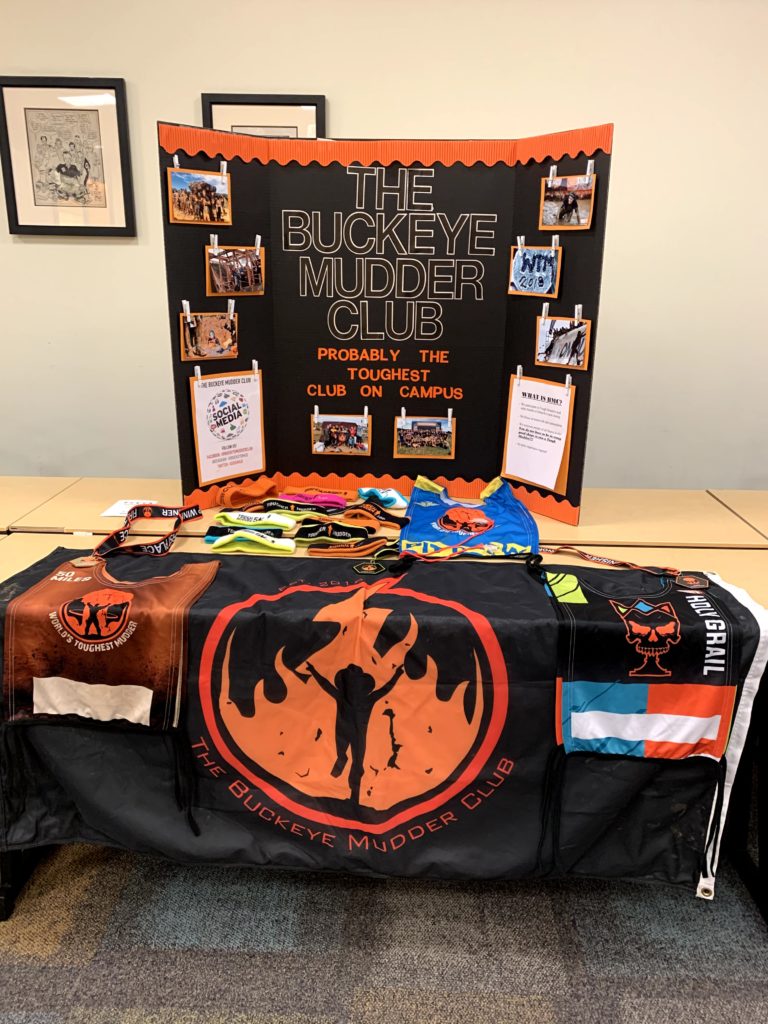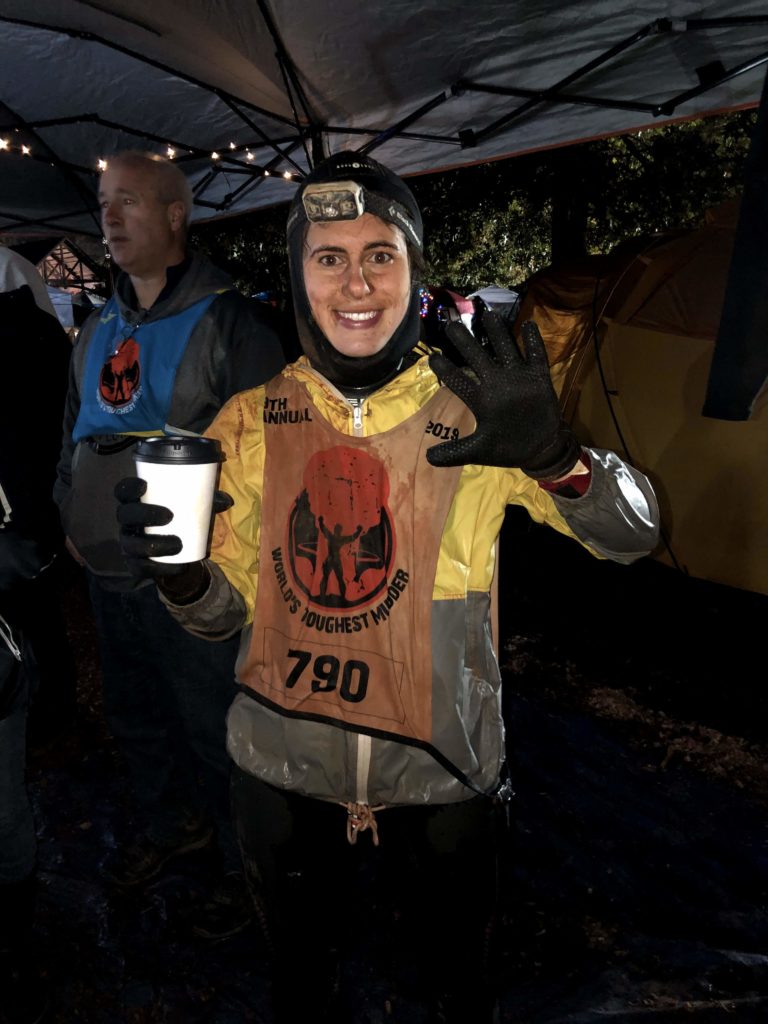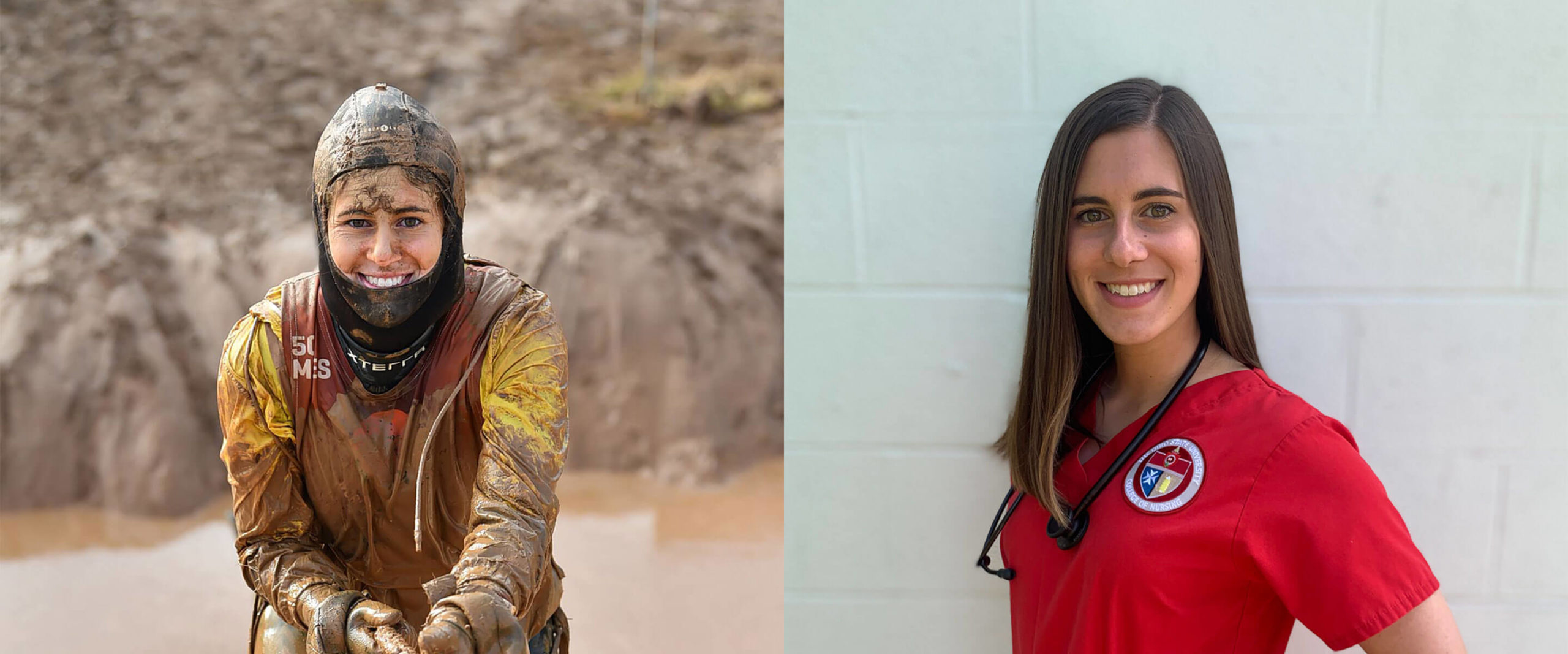Dana Furnas is a critical care nurse at Ohio State Wexner Medical Center and the former President of the Buckeye Mudder Club at Ohio State University. She has completed four Regional Toughest Mudders, two World’s Toughest Mudders and will be going for her third in November. We sat down with Dana to talk about discovering Tough Mudder, how she found love in the mud and her World’s Toughest Mudder experiences.
“The Tough Mudder community, for me, means meeting people from all over the world that you never would have met anywhere else. Becoming friends with people who are older than you, younger than you, from all different aspects of life. Getting to see them out on the course, all across the country, and staying friends even though you may only see each other once or twice a year.”

TM: You were president of the Buckeye Mudder Club at Ohio State, how did this start and what made you join?
D: When I was a freshman, going into my Spring semester of freshman year, I had gotten an email about the Involvement Fair that Ohio State puts on. This is where all the clubs come and promote them to get people to join. I had been scrolling through it to see what things I could join and I saw Buckeye Mudder Club. I had already done one Tough Mudder in high school, so I knew what it was, and I was like, I wonder if this club does OCR stuff. So I made my friend, come to the Involvement Fair with me because I didn’t want to join this club by myself, so my friend and I went, and we joined, and then went to the workout. I forced her to come to the workout and she’s not an athlete, she has never done sports. I was like, “You’re coming to this with me, because I’m not going by myself.” We started doing the workouts with some friends we made. At the end of that semester, we went to Toughest in Philly with them and helped them run it and that was my friend’s first Half Mudder and I ran it with her and that was how we all started.
TM: You met your boyfriend from the Tough Mudder club?
D: I met Zach the very first day of joining the club, he was the co-founder. I had done the Spring Semester with him and then Fall Semester. We didn’t actually start dating until a little over a year after I met him, we started dating in January of 2018. So we’ve been together for three and a half years now. We both motivate each other to keep going back to World’s and Toughest and doing crazy stuff, like Poconos, but it’s fun to do it together.

TM: How did your first World’s Toughest Mudder go and how did you feel?
D: First, for World’s, my feelings were a mix of both: “Why am I doing this?” And also, “This is the coolest thing ever.” You go through that 10 times during the 24 hours. I think leading up to it, I was so nervous. “Can I do this?” “Can I finish it?” Then, once you’re there, you’re kind of like, well, I flew out here, and I bought all this gear, I guess I have to do it now. So then, during the race, my first year was Atlanta 2018, and it was freezing. I get really cold really easily and I had been with a few of my friends there and they had been dropping out overnight, staying in the pit trying to stay warm. But I was worried that if I went in the pit, I would never leave the pit again. So I was like, “No, I have to keep moving.” I got 50 miles at my first one, which was really exciting. My first goal was to just finish the event and just be considered a finisher, but my second goal is to hit 50 miles, so I was really excited to hit 50.
TM: How has it been being a nurse on the frontlines of a pandemic?
D: The past year has been a little rough. We have had a lot of COVID patients, very short staffed, and our staff has gotten COVID, so we’ve been even more short staffed. Having really sick patients, it’s hard when you can’t see your family, you can’t do anything because you don’t want to get them sick. It was starting to get a little better during the Spring and now our numbers are starting to go back up, so it’s getting a little rough again.
TM: Do you feel that training for these endurance events helps with the mental aspect of being a nurse?
D: Yeah, I think training is something that’s kind of a relief. When you’re out there running long runs, you can think through everything and process your workday. So I’ve always really enjoyed working out and running. I think it’s always been something that’s helped me cope with hard days at work.
TM: You’re putting your body through the craziest thing you’ll ever do- what keeps you going back to Tough Mudder’s endurance events?
D: I think I keep coming back because of the sense of accomplishment that you get when you finish a race. Especially after like your first event, knowing that you can do that much, you can run that far is, you have the immediate feeling when you finish of, “I’m never doing this again,” “I’m so tired,” “I don’t even want to see another Tough Mudder course.” But then, if you give it a few days, you’re like, “Oh wait, that was actually really cool. I did a lot and I pushed my body beyond what I thought I could do.” Then, every time you do one, you’re like, “Well, maybe next time I could do another lap, I could make it a little further.” So it kind of just keeps motivating me to come back.

TM: What was the lowest moment that you’ve had on the course?
D: World’s, my first year, on the second lap when obstacles started opening up. Cage crawl was one of them and the volunteer there hadn’t been controlling how many people were going in at a time. The water level was pretty high, so I got in and the water was touching the fence, so you couldn’t breathe. I went into like full panic mode qnd you can’t hear anything because you’re underwater. The volunteers were trying to yell commands and help people through it, but it doesn’t work because you can’t hear anything. I remember making it through, coughing up water, and then ran the mile and a half or two miles back to the pit and being like, “I can’t do that. Cage call is the most complete obstacle, I’ll get disqualified if I don’t complete that obstacle, but I can’t go in there again.” I remember being terrified to go back out for lap three and I ended up staying in the pit for a while. My parents and best friend were there and they were like, “You’re going to be okay, just take a breather.” Then, by the time I had made it back to Cage Crawl my next lap, they had drained some of the water and it was much lower, so the anxiety of going to the obstacle every lap for 10 laps wore down a little bit and I was okay and I kept going.
TM: What was the highest moment?
D: Finishing World’s my first year. Coming across the finish line, I was with one of my friends from the club. He had gone out overnight with hypothermia, so he had made it back out in the course for one more lap in the morning to be a Finisher. I had caught up to him or he caught up to me in the last lap and we crossed the finish line together with our Buckeye Mudder flag. My parents were there and some of the other people from the club were at the finish line and I remember it starting to sink in, “You did it. You’re done.” Just being so proud of myself for completing it.
